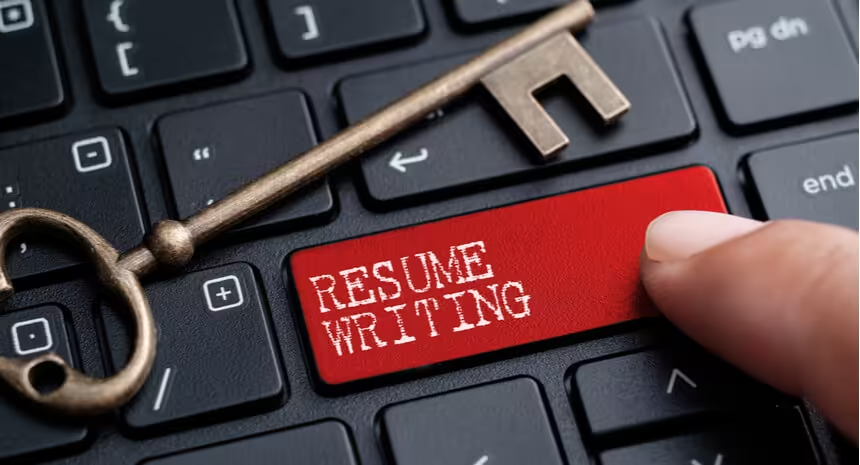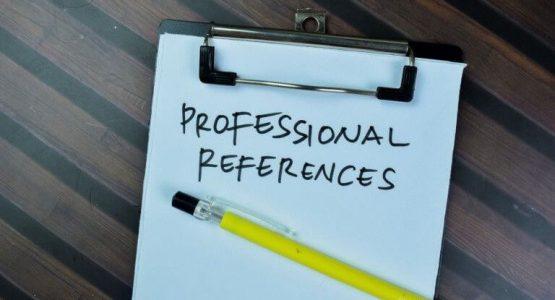So, you’ve been asked to provide a letter of reference for a colleague, friend or former employee. While you’re probably happy to help, you might not know exactly what an effective reference letter looks like.
Jobseekers often wonder if they should submit reference letters with their resumes or job applications. This usually isn’t necessary. Most often, employers will ask for a resume reference page that contains a list of personal or professional references along with their email addresses and telephone numbers once the jobseeker enters the final stages of the interviewing and hiring process.
Instead of just requesting contact information, occasionally, a potential employer will ask a candidate to provide a resume reference letter. For a jobseeker, it’s important to choose appropriate references who have the insight to endorse your skills. In this case, your colleague believes that you’re the person for the job!
Our guide will give you the tools to tackle this honor with ease. Here, you’ll learn everything you need to know about writing resume reference letters, including:
- What a reference letter is and who should write one.
- The two types of reference letters, plus examples of each.
- How to write a reference letter.
What is a reference letter?
A resume reference letter is a letter of recommendation, or an endorsement of the skills and personal qualities of a job applicant. They’re written by a person who is highly familiar with the quality of the candidate’s work ethic, personal characteristics, hard and soft skills and accomplishments.
When you’re asked to write a reference letter, the goal is to explain to the recipient why the candidate in question is right for the role. It highlights the candidate’s credentials and the personal characteristics that make them right for the opportunity.
Even though you’re not applying for the role as the letter-writer, writing an effective letter is a great way to work on building your professional network by supporting a colleague’s goals. If your job involves significant mentorship responsibilities, writing reference letters may even be considered a responsibility for your role.
PRO TIP:
Both cover letters and reference letters contain the same structure. To learn more about how to write a strong letter, you can study how to write a cover letter to understand the six basic sections every letter needs.
Two types of reference letters
There are two main types of reference letters — a professional reference letter and a personal letter of recommendation, which is sometimes also called a character reference. While both types of letters can be used when applying for jobs and internships or when seeking entrance to college or graduate school programs, the type of reference letter you choose will depend on its purpose.
Primarily, a personal letter of recommendation and a professional reference letter differ in their context, purpose and the relationship between the writer and the recipient. Here’s a breakdown of their main differences:
PRO TIP:
In the job search, professional reference letters often hold greater weight due to the writer’s professional relationship with the applicant. However many candidates struggle with how to provide references without experience. For newcomers to the workforce, a personal reference letter is a great substitute that can provide valuable insights into the applicant’s character and personality through the use of personal anecdotes.
Professional reference letter
A professional reference is a business letter written by — you guessed it — someone who has worked closely with the recipient in a professional capacity. This could be a supervisor, co-worker or mentor.
These letters focus on evaluating the person’s work-related skills, achievements, expertise and potential for success in a professional setting. Employers commonly use professional reference letters to make hiring decisions based on how a candidate has applied their skills in the workplace.
That’s why this type of letter should provide specific examples of the applicant’s hard and soft skills, job performance and their contributions to a team or organization. The tone of a professional reference letter is typically formal and should emphasize the writer’s credibility and direct knowledge of the applicant’s professional competence.
Here are some examples of professional resume reference pages:
Sample professional resume reference letter
Professional reference template
Donna Murphy
Lansdale, PA 19446
555-555-5555
example@example.com
October 13, 2024
Rebecca Wright, School Principal
Inglewood Elementary School
1313 Allentown Rd.
Lansdale, PA 19446
Dear Ms. Wright,
I am writing to recommend Donna Murphy for the school psychologist position at your esteemed institution. I have had the privilege of working closely with Murphy for six years as her supervisor at Psychological Testing Solutions, where she has consistently demonstrated exceptional professionalism, expertise and dedication to student’s well-being and academic success.
As a school psychologist, Murphy has exhibited an unwavering commitment to fostering a positive and inclusive learning environment. Her extensive knowledge of psychological principles and theories, coupled with her ability to apply evidence-based interventions, has significantly impacted the social-emotional development of students under their care. She consistently demonstrates a deep understanding of various disabilities, mental health conditions and learning challenges, allowing her to tailor individualized strategies that address the unique needs of each student. Notably, she has facilitated over 100 group counseling sessions targeting specific social-emotional skills, which improved overall student well-being.
One of Murphy’s greatest strengths lies in her ability to establish meaningful connections with students, their families and other educational team members. She possesses exceptional communication skills, both verbal and written, enabling her to effectively collaborate with teachers, administrators and parents to develop comprehensive intervention plans that support student growth and well-being. Her empathetic and compassionate approach has earned her the trust and respect of students, who often seek guidance and support during challenging times.
In addition to her exceptional clinical skills, Murphy is a superb communicator and team player. She has consistently contributed valuable insights during multidisciplinary team meetings, IEP (Individualized Education Program) meetings and consultations with educators and parents. She fosters positive relationships and maintains open lines of communication, ensuring that all stakeholders are well-informed and actively involved in the support of students.
As a psychologist and her administrative supervisor, and based on my extensive experience working with Murphy, she would be an exceptional asset to your organization. Her combination of clinical expertise, interpersonal skills and dedication to promoting student well-being makes her an ideal candidate for the school psychologist position.
If you require further information or have questions regarding Murphy, please do not hesitate to contact me at 555-555-5555 or example@example.com. Thank you for considering Murphy’s application, and I wholeheartedly recommend her for the school psychologist position.
Sincerely,
John Taylor
Personal reference letter (or character reference letter)
A personal reference letter is written by someone who knows the recipient on a personal level, such as a friend, family member or neighbor. The goal of this type of letter is to provide insights into the individual’s character, personal qualities and suitability for a position.
Typically used for academic programs or for volunteer opportunities, they’re also utilized in the job search by entry-level applicants who might not have an abundance of professional referrals to offer a potential employer.
Personal reference letters tend to highlight the recipient’s integrity, character traits, interpersonal skills, leadership abilities or soft skills that showcase their positive qualities. The tone of a personal reference letter can be more informal and subjective, reflecting the personal relationship between the writer and the recipient.
Here are some examples of personal resume reference pages:
Sample resume personal reference letter
Personal reference template
Henry Allen
Olney, MD 20832
555-555-5555
example@example.com
December 8, 2024
Frank Butler, Transportation Manager
Eyre Bus Service, Inc.
67 Golden Star St.
Olney, MD 20832
Dear Mr. Butler,
I am writing this letter to express my utmost confidence in Henry Allen as a competent and reliable bus driver and operator. Having known Henry for over 10 years, I can attest to his exceptional skills, professionalism and dedication to his work.
I met Henry several years ago through a mutual friend when we met at school and were getting the CDL, and our friendship has blossomed since then. Through our numerous conversations, I have understood his deep passion for driving and providing passengers with a safe and comfortable experience. His commitment to safety is unparalleled, and I have witnessed firsthand their excellent driving skills, ensuring that passengers always feel secure and at ease during their journeys.
One incident that stands out in my memory is when we were driving together during a snowstorm. The roads were treacherous, and visibility was poor. However, Henry remained composed and maintained complete control of the vehicle, ensuring the safety of everyone on board. He skillfully navigated the challenging conditions, displaying exceptional decision-making abilities that left me in awe.
Furthermore, he naturally creates a welcoming and friendly atmosphere on the bus. I have personally witnessed passengers being greeted by his warm smile and genuine kindness. He goes above and beyond to assist elderly passengers, ensuring they are comfortable and well cared for. This innate ability to connect with people sets him apart from others in their field.
In summary, I sincerely recommend Henry for your bus driving position. His exceptional driving skills, professionalism, dedication and ability to create a welcoming atmosphere make him an invaluable asset to any organization. I am confident he will continue to excel in his eight-year career and bring immense value to your company.
Thank you for considering my recommendation. I am sure he will exceed your expectations and be an outstanding addition to your team.
Sincerely,
Maria Griffin
How to write a reference letter
A friend or colleague has asked you to write a reference letter for them, but where do you start? Here, you’ll discover what belongs in each section of a resume reference letter so you can quickly and easily write your own.
Salutation: Greet the letter’s recipient
Since resume reference letters are typically written late in the interview process, the person who has requested the letter of recommendation should be able to provide you with the name of the hiring manager or recruiter to whom it should be addressed. Personalizing the letter rather than using a generic salutation, like “To Whom It May Concern,” is important, so take the time to get the correct name before you sit down to write.
First Paragraph: Introduce yourself and your relationship to the candidate
In the first paragraph of the reference letter, begin by introducing yourself and stating your relationship with the candidate. Mention how you know the individual, whether it’s through a professional setting, volunteer work, an academic institution or another context.
Briefly provide your credentials or position in the first paragraph. This helps establish your credibility as a recommender and gives the reader an understanding of your connection to the candidate.
Body paragraphs: Provide details
In the body paragraphs, which should be between one to three paragraphs long, you should provide specific details about the candidate’s qualifications, skills and positive attributes. Here are some points to cover:
- Explain how you know the candidate: Describe the nature of your relationship with the individual. Whether you were their supervisor, co-worker, professor or mentor, explain the capacity in which you interacted with them and the duration of your association.
- Explain how long you’ve known the candidate: Indicate the length of time you have known the candidate to provide a sense of the depth and breadth of your familiarity with their abilities and qualities. This helps establish your perspective on their growth and development over time.
- Add details on projects you’ve worked on together, if applicable: If you have collaborated with the candidate on specific projects, highlight those experiences. Describe the nature of the projects, the candidate’s role and contributions, and any notable achievements or outcomes. This helps demonstrate the candidate’s competence and ability to work effectively in a team or individual capacity.
- Give details of the candidate’s positive personal qualities: Hard skills aren’t everything — soft skills count, too. Even in a professional recommendation, dedicate some focus on the candidate’s personality strengths and qualities that are relevant to the position or opportunity they’re pursuing. Discuss their work ethic, problem-solving abilities, leadership skills, communication skills, adaptability or any other attributes that make them stand out. Provide specific examples or anecdotes that illustrate these qualities.
PRO TIP:
A great reference letter doesn’t focus solely on technical skills or character endorsements. To showcase your colleague as a well-rounded professional, highlight a balanced mix of both hard and soft skills.
Letter Closing: End with a statement of recommendation
In the closing of your letter, be sure to clearly state that you’re recommending the candidate. Express your confidence in their abilities and reiterate your belief in their suitability for the role they’re seeking. Use strong and positive language to endorse the individual, focusing wherever possible on action verbs. You can also offer to provide further information or be available for follow-up if needed.
Signature
After the closing statement, end the letter with a formal signoff. Include your full name, job title or professional designation, contact information and any other relevant details that add to your credibility as a recommender. Including your contact info allows the person receiving the letter to contact you with any relevant follow-up questions.
At the bottom of your letter, also include your handwritten or digital signature below your typed name.
Remember to review and proofread your letter before sending it. Ensure it is well-structured, concise and error-free. With these guidelines, you’ll be equipped to write an effective and compelling reference letter for your friend or colleague.
PRO TIP:
When you’re asked to provide a reference letter for someone, it has to be well-written and look professional. Consider writing your letter on a cover letter template, which allows you to concentrate on the contents of your recommendation by doing the formatting for you.
Key takeaways
There are two types of resume reference letters — a professional reference letter and a personal or character reference.
Typically, personal reference letters focus on an individual’s personal qualities and are written by people who know them intimately, while professional reference letters emphasize professional skills.
In most cases, a professional resume reference letter is composed by an individual who’s worked closely with the recipient in a professional capacity, though applicants with little to no work experience might opt for a personal recommendation instead.
Professional references should be formal, while personal letters of recommendation can be slightly more casual.
When learning how to write a reference letter, study the five sections of this type of recommendation: the salutations, the opening paragraph, the body paragraphs, the letter closing and the signature.
Was this information about How To Write A Reference Letter (+ Examples And Templates) helpful? Let us know!
Heather is the Content Strategy Manager for Resume Now and a Certified Professional Resume Writer (CPRW) with more than ten years of experience writing about job search and career topics. She is based in San Francisco.
More resources

How to Write a Resume: Guide & Examples for 2025
If you re wondering how to write a resume that grabs attenti...

Should You Put Your Address on Your Resume? (Guide + 5 Example Resume Headers)
Should you put your address on your resume? We ll answer you...

Nursing Resume: Examples & Templates for 2025
Planning to pursue a nursing career? Let our samples template...

HR Assistant Resume: Examples, Templates and Tips for 2025
Need an HR assistant resume that gets interviews in 2024? Our ...

Manager Resume: Examples, Templates & Tips for 2025
As a manager you can take on a lot of responsibility. Now ch...

